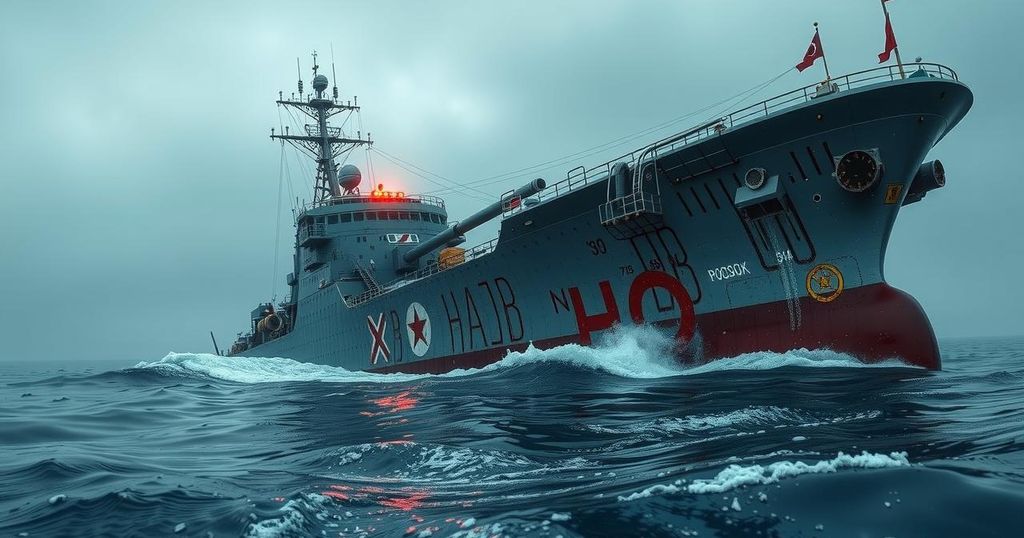Military Tensions Rise as Ukrainian President Warns of North Korean Involvement

The Russian cargo ship Ursa Major reportedly sank in the Mediterranean while allegedly transporting weapons to Syria. This incident coincides with Ukrainian President Zelensky reporting over 3,000 casualties among North Korean troops fighting with Russia. Urging stronger Western support, Zelensky also criticized Slovakia’s reliance on Russian gas. Italy has committed military aid to Ukraine through 2025, while Pope Francis called for a worldwide ceasefire ahead of Christmas celebrations.
On December 11, a Russian cargo ship, Ursa Major, reportedly sank in the Mediterranean Sea while allegedly en route to Syria for weapon collection, as per claims from Ukrainian military intelligence. Following an engine room explosion, two crew members are missing while fourteen others were rescued and taken to safety in Spain. Ukrainian President Volodymyr Zelensky revealed that North Korean troops participating in the conflict alongside Russia have suffered over 3,000 casualties, prompting concerns about growing military cooperation between Moscow and Pyongyang.
In addition to military developments, Ukrainian President Zelensky called for enhanced support from Western nations in light of recent struggles, emphasizing that Ukraine does not have the capabilities to recover lost territories without such assistance. Italy has extended military aid to Ukraine until 2025, highlighting its commitment to helping Kyiv amid uncertainties surrounding American support under the new administration.
Moreover, President Zelensky criticized Slovak Prime Minister Robert Fico for his reluctance to reduce Slovakia’s dependence on Russian gas, framing the issue as a significant security concern for Europe. Relations deteriorate further when Fico rejects compensation offers related to gas transit amid ongoing conflict. In other significant news, Pope Francis called for a ceasefire worldwide ahead of the Christmas festivities, highlighting the dire humanitarian situation in Ukraine and Gaza.
The ongoing conflict between Ukraine and Russia has brought significant international attention, with military movements and support from various nations impacting the situation. The Russian invasion of Ukraine, which began in February 2022, has resulted in military conflicts on multiple fronts, as well as humanitarian crises affecting civilian populations. In this context, alliances formed by Russia, including North Korea’s involvement, have raised alarm among Ukraine and its allies, prompting urgent calls for military support from Western countries. Italy’s sustained military assistance is a pivotal aspect of this ongoing support structure, especially as the geopolitical landscape shows signs of shifting with regard to U.S. foreign policy. Furthermore, regional leaders like Slovakia face pressure to diversify energy sources in light of their dependency on Russian gas, which complicates their positions as conflicts escalate. This interwoven dynamic of energy dependency, military alliance shifts, and international diplomacy remains a focal point in the discourse surrounding the Ukraine-Russia conflict.
In summary, the recent sinking of the Russian cargo ship Ursa Major amidst allegations of arms transfer to Syria, coupled with the rising casualties of North Korean soldiers, underlines the escalating military cooperation between Moscow and Pyongyang. President Zelensky’s appeals for increased international support and criticism of regional leadership exemplify the interconnected challenges Ukraine faces not only militarily but also in securing energy independence. Meanwhile, ongoing calls for peace, such as those from Pope Francis, reflect global concerns about the humanitarian consequences of the conflict.
Original Source: www.independent.co.uk







